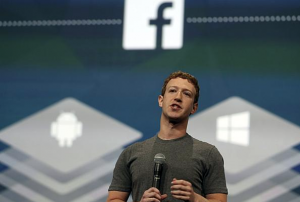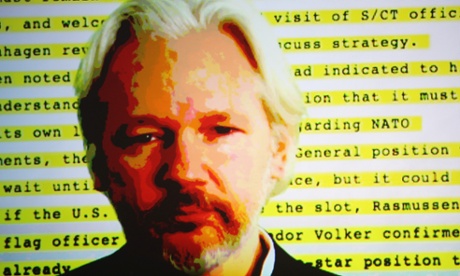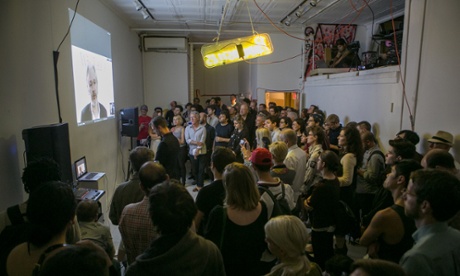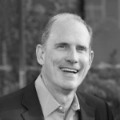PBS NewsHour -
TRANSCRIPT
RELATED LINKS
Jeffrey Brown has the story.
JEFFREY BROWN: It’s a fight that started last spring over the price of e-books when Amazon demanded discounts from the publisher Hachette. That was rejected, leading to Amazon’s refusal to preorder, discount or promptly deliver many Hachette titles.
The publisher’s authors took the fight public, and now they have been joined by hundreds of other writers, including Philip Roth, Salman Rushdie, and Ursula Le Guin. The writers also want the Justice Department to investigate Amazon for illegal monopoly practices.
Roxana Robinson is a novelist, biographer, and president of the Authors Guild, and one of the leaders of this effort.
For the record, Amazon has not responded to several invitations to join us.
So, Roxana Robinson, what is this fight about now? Has it become a debate whether Amazon is just too powerful today when it comes to the market for books?
ROXANA ROBINSON, President, Authors Guild: Well, there are several ways to look at it.
Yes, Amazon is incredibly powerful. It dominates the market in books of all sorts. And it is — the reason that everybody became so vocal about it was the fact that Amazon targeted writers who were completely vulnerable in this circumstance and unable to change the situation. And so Amazon took on the writers for Hachette and made it very difficult to buy their books.
So these writers have seen plunges in their sales and plunges in their income. And it’s something that they can’t do anything about. We find that unacceptable for a huge marketer who got its start selling books to target writers and make them into victims.
JEFFREY BROWN: Amazon — of course, it is a marketplace. Amazon argues it wants to lower the prices of books. It can sell more books that way. They say publishers don’t want this and want to keep the price high for themselves.
ROXANA ROBINSON: Well, here’s the thing.
Amazon has made a public claim saying that they have studies that show that if you drop the price of e-books, all e-books would sell more. They don’t show what those studies are. They don’t show any numbers. It’s not — it doesn’t make any sense. First of all, it presumes that there is an infinite demand for books, which isn’t true. If you made all the books on Amazon free, they still all wouldn’t find homes.
So people buy the books they want to buy. Secondly, it won’t change people’s reading habits. If you want to read “Moby-Dick,” you’re not going to buy a romance novel just because it’s cheap. You are going to buy “Moby-Dick.” So it’s not — it’s not really going to change things.
What they want to do is drop the prices of e-books so they can make more sales, so they make more money. It’s not going to help a huge number, a huge proportion of the people whose books are sold through…
JEFFREY BROWN: You know, it is true, of course, that the publishers, Hachette included, are part of much larger corporations. They’re big guys too.
So I wonder, for you as an author and authors you work with, do you look at the publishers as the good guys vs. the bad guy Amazon? Is there any good guy here?
ROXANA ROBINSON: Well, here’s the thing. Of course, Hachette is a huge company. It’s a million-dollar, billion-dollar, international company.
It’s dwarfed by Amazon, which is much larger. But the big difference is their attitude towards books and towards writers. And what publishers do is invest in books. They pay advances to writers. They recognize the fact that it may take years to write a good book for a biographer, for a writer of history. And they — they invest in the book. Amazon doesn’t do that. Amazon doesn’t do editorial tasks.
They don’t take a position on the intellectual merit of a book. So, in terms of supporting our endeavor, our intellectual property, there’s a big difference between these two companies.
JEFFREY BROWN: On the other hand, though, Amazon has created this marketplace in which books are so much cheaper for consumers, they’re so much more readily available. Millions of people clearly like that. And authors see a changing industry, right, a changing world of commerce.
ROXANA ROBINSON: Absolutely.
And Amazon has — by lowering their prices, they have driven out of business a lot of bricks-and-mortar book stores. So, there are lots of people who have no choice but to buy on Amazon. And Amazon makes it very easy. And we all have to accept the fact that most books are sold on Amazon.
But that doesn’t mean we have to accept the fact that they are targeting writers and punishing us for something that we have no control over.
JEFFREY BROWN: Have you or other writers you know been in touch with Amazon? Have they reached out to you at all to find some kind of resolution?
ROXANA ROBINSON: Amazon has been very closed-mouth about this. They have reached out to someone I know, and I was sent a letter asking if writers would support a response that they would make — which became public. It was a deal in which Amazon and Hachette would give money to charity, but writers still wouldn’t make any money.
But they certainly have not come to any table, as far as I know. I don’t know. Both sides are being pretty — pretty quiet about this.
JEFFREY BROWN: And just very briefly, this new effort among hundreds more authors, some very prominent authors, this has become a very public matter. Is that the — is that a strategy, I guess, on the part of authors?
ROXANA ROBINSON: Well, it’s a circumstance that we find very troubling.
And, you know, there are millions and millions of readers in the United States. So we are bringing this to the public.
JEFFREY BROWN: All right, Roxana Robinson, novelist, president of the Authors Guild, thank you so much.
ROXANA ROBINSON: Thank you.
----
Of the global smartphone market, Schmidt explained Google's strategy as one of mass penetration. Android currently holds around 84.7 per cent of the market, compared to Apple's 11.7 per cent. Windows Phone 8, BlackBerry OS and other operators make up around 3.6 per cent.
"The fact of the matter is you can make a small market share with a lot of profits, or you can make the same amount of money with a much larger market share, and lesser profits. We go for volume in our strategies," he said.
The rivalry between Apple and Google was more brutal than ever before, he added. "It's more brutal in the sense the margins are very tough for the operators, the handset manufacturers; and the benefits to the consumer of having these products dropping... It's always good to have more competitors, but trust me, between Apple and Google you're seeing enormous, enormous racing."
Schmidt and former senior vice president Jonathan Rosenberg gave the interview to promote their book How Google Works, covering corporate culture, strategy and innovation at the search engine.
Why competition between Apple and Google is more brutal than ever
Competition between Google and Apple is more brutal than ever, and is the "defining fight of the computer industry", according to Eric Schmidt.
|






